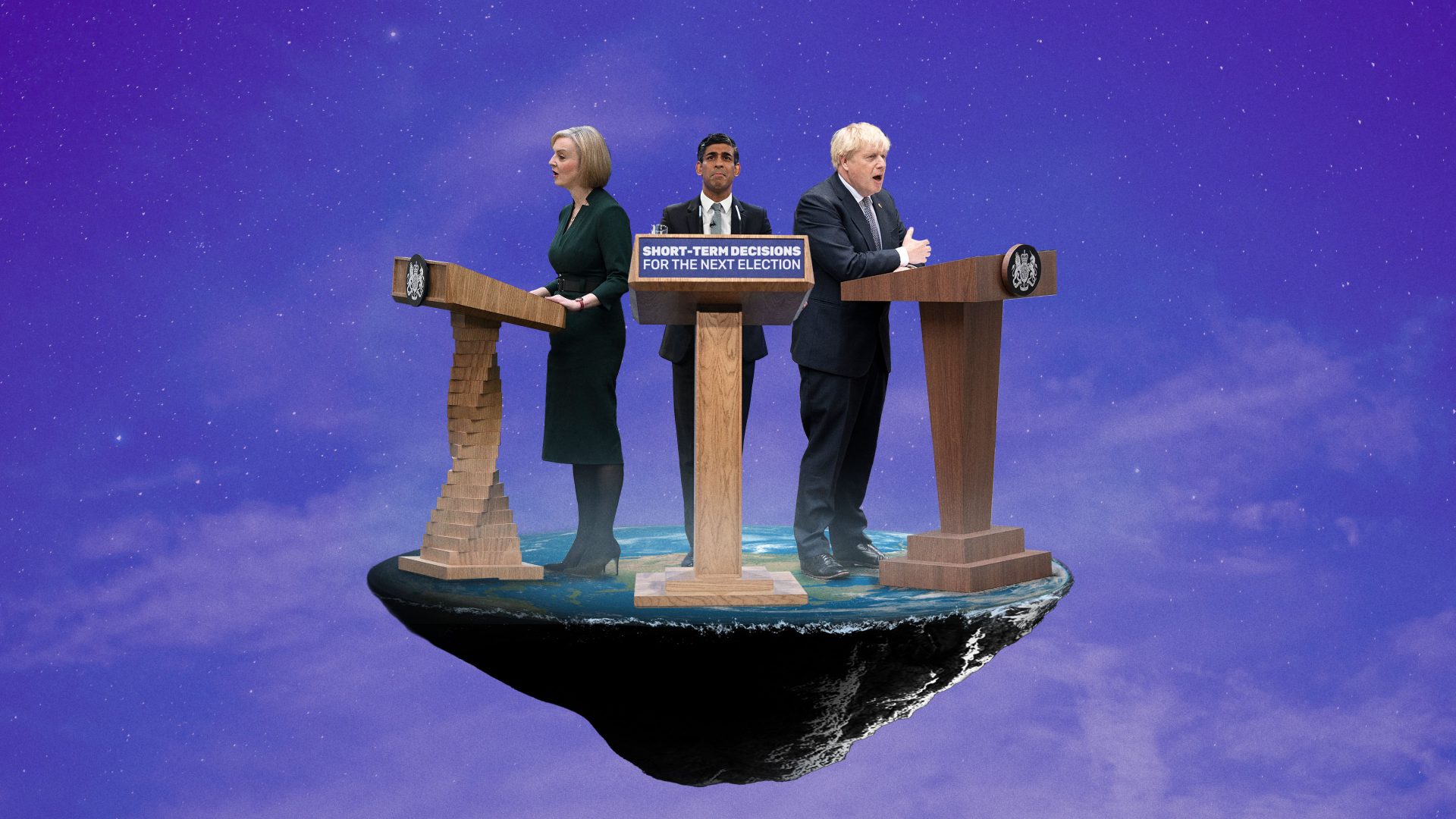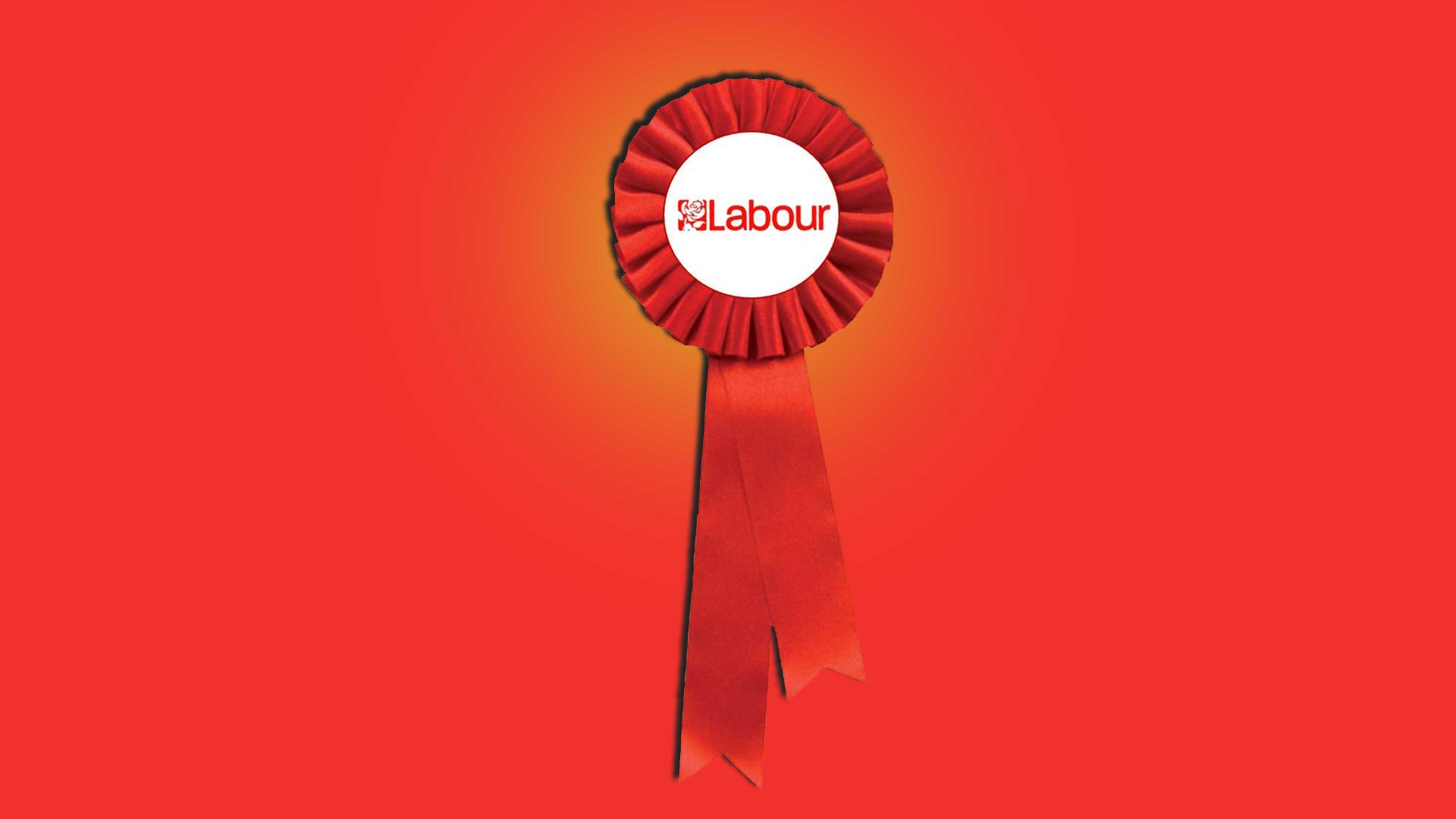At the next election Max Hastings, a former editor of the Conservative house journal the Daily Telegraph and a former columnist for the true blue Daily Mail, will vote Labour.
Hastings, a journalist and military historian who also edited London’s Evening Standard, looks and sounds like a Tory grandee. He dots the conversation with references to old friends who served under Margaret Thatcher: Michael Heseltine, Douglas Hurd and Ken Clarke.
Yet he now looks on Conservatism with dismay – and contempt. In his view, the Tory Party is now little more than a hard-right shell, run by delusional third-raters who mistake personal ambition for leadership, and who have brought Britain to the point of disaster. He calls Rishi Sunak’s government “dreadful” and led by a “loser”. Suella Braverman’s policies are “grotesque”; Brexit a “disaster”. And the party membership, who buy the papers Hastings edited and wrote for, are in his view “Flat Earthers” and “almost without exception fantasists”. His view of Boris Johnson is even harsher.
The party, he says, has become distorted beyond recognition by the political influence of populism, and particularly by the looming presence of Nigel Farage, who, he says, “without doubt is the most influential British politician of the last 30 years”.
Farage attended this year’s party conference and was photographed dancing with Priti Patel, the former home secretary, while singing Can’t Take My Eyes Off You. When asked his view of Farage, Jacob Rees-Mogg told the BBC, “I think Nigel is broadly a Tory and always has been. If he wanted to join I can’t think his membership would be refused.” The Conservative Party has become a radical, populist party – and in a bitter irony, Hastings himself helped to bring it all about.
Hastings edited the Telegraph from 1986 to 1995, and in one of the most consequential decisions in recent British political history, he gave Boris Johnson his first job. “When Johnson became prime minister, I was given a hell of a time by the Washington Post and the New York Times,” he says. “They rang me up on more than one occasion and said, ‘but you were the one who got him started. You employed him. And look where that ended up’.
“It never crossed anyone’s mind that Boris Johnson might enter public life because he was so obviously unsuited to it,” says Hastings. And why was he so unsuited? I ask. “Well, because he’s the most selfish and irresponsible human being I think I’ve ever met,” he says. “I’ve remained staggered that so many people are willing to treat Boris Johnson seriously, when his recklessness and his selfishness have been displayed again and again.
“At one time or another in his life, he’s betrayed every individual or cause to which he has ever been attached. Whether it’s the women in his life or all the various causes.” It is Johnson, in his view, who has dragged Britain and British politics into “this madly reckless and irresponsible mood”, and he did this by aligning himself, and the Conservative Party, with the political ambitions of Nigel Farage.
Farage’s impact on public life “has been entirely malign”, says Hastings.
“He is brilliantly skilled in pinpointing the issues that alarm many British people, and expressing them in a voice they find sympathetic. But he offers no answers to the problems, and indeed his rhetoric shows that he has no interest in proving himself fit to govern.
“Farage convinced millions of people that the mere act of leaving the EU would at a stroke solve our national difficulties, and probably also make the sun shine every day of the year,” he says. “Grown-up people recognise that government is a matter of choosing the least bad option – there is never a counsel of perfection.”
Though not a Conservative supporter, Hastings worries that the party is dragging British political culture in a sinister, populist, intolerant direction. Political decay of this sort has already occurred in Poland, Hungary, Slovakia and also the US, which has now slumped into outright political dysfunction. Will Britain follow? Or is there a way to contain the dangerous political impulses that Johnson and Farage have unleashed?
Several years ago, Hastings was having lunch with Michael Howard – the historian, not the Brexiteer politician – and their conversation turned to British exceptionalism. Howard came out with an unusual comment: “Such a pity about victory in the Falklands, wasn’t it?” Hastings asked what he meant. Howard replied: “Well, in 1982, the British people were just starting to get over empire and the second world war, and to realise that we were a very nice middle-ranking state, who had to make common cause with our neighbours. And then along came victory in the Falklands, which revived all the old ideas of British nationalism and the union flag and the British lion standing alone.”
It was meant partly as a joke, but there was a serious point behind it – a section of the electorate had developed an unrealistic view of Britain, and this had caused moderate patriotic feeling to swell into outright nationalism. And once that nationalist germ had entered mainstream British politics, it led with grim inevitability to a distrust of foreigners, and to the subject that now dominates the Conservative Party – what Suella Braverman has called the “hurricane” of immigration.
The only hope Britain has of dealing with the current increase in immigration, says Hastings, “is going to be through common policies with our neighbours.” But this has been impossible, he says, partly because of Brexit, but also because this generation of post-Johnson political leaders are “very bad at telling the electorate things that they don’t think it wants to hear.”
They are also in thrall to the party’s members, whom Hastings refers to as the “Flat Earthers”, the diehard Tory faithful who between them select the leader. That power was given to the membership by William Hague, a move that Hastings describes as disastrous.
“These people thought Liz Truss was the answer to the nation’s problems,” he says. “As long as these 200,000 Flat Earthers around the country have a decisive voice, then I’m very gloomy about the Conservative Party’s prospects.”
And who are those Flat Earthers? “Almost without exception fantasists about the sort of Britain that we live in,” he says, the kind of people who imagine themselves “standing on the White Cliffs of Dover behind Boris Johnson while he gives two fingers to Johnny Foreigner. I’m afraid I see their ideas as being rooted in a vision of a Miss Marple view of Britain in the 1950s.”
But what about Sunak, who represents a kind of diversity very different to the Conservative Party of the 1950s? “I think he’s a decent person,” says Hastings. “But is he a leader? I’m afraid not.
“I’ve always been sceptical whether people who are school head boys are likely to be good leaders of anything, because to be head boy of a school means you’re willing to go along with the system, means you’re willing to go with the flow.”
“I think Sunak’s fate at the back end of this dreadful government is deeply unenviable, but there he is. And, of course, he’s always going to be remembered as the tail ender – the loser.”
It looks very likely that Sunak will lose the next election to Keir Starmer. But if the Tories get the heave-ho, what then? The conventional path back to power for a defeated party involves a round of savage infighting, followed by the removal of the old leadership and their replacement with a new, less tribal, more centrist political offering to broaden the party’s appeal. This is what Starmer has done with Labour after Corbyn.
But for a post-defeat Tory Party, says Hastings, “what’s going to be missing is the centrists”, who were all expelled from the party by Johnson for refusing to go along with his Brexit plans. And how can a party build a centrist political offering without centrists? All that’s left in the Tory Party are “factions of the right”, dominated by individuals who in any previous period would have been thought a joke.
“In the 1980s and 1990s,” says Hastings, “people like Iain Duncan Smith, who’s now spoken of as a Tory elder statesman, we just regarded as bonkers, we didn’t take him seriously. He was a nuisance – nothing more.”
But now the right is in charge. The result is a blinkered, inflexible party, dominated by blinkered, inflexible politicians with a delusional view of Britain’s place in world affairs, who are unable to grasp the problems that the country faces, let alone solve them, and who are themselves incapable of change. Hastings returns to the question of immigration.
“The only rightful answer to this problem of mass migration is we’ve got to consider foreign aid on a huge scale – this again on a Europe-wide basis,” he says. The aim is “to make living conditions more tolerable for the people living in the countries of the southern hemisphere.”
But that message on foreign aid is the “absolute reverse of the message that the Conservative Party has been selling for years – that Johnson and Truss and so on, and even Sunak, have been selling.” For the Conservative right, the immigration issue is reduced to a policy of stopping the boats, and the “grotesque” idea of shipping migrants to Rwanda.
“It is getting more and more difficult to tell unwelcome truths to the electorate about what’s happening around us,” he says. That is as true of immigration as it is of Brexit, which, Hastings says, has been “an absolute disaster”.
It’s a gruelling conversation – the picture he paints of Britain’s place in the world is a sobering one. Despite mutterings about a new trade deal, he thinks the US will do nothing to help post-Brexit Britain, saying “they look on Britain as a very nice theme park, but they don’t regard us as a serious country”. Our support for Ukraine hasn’t been half as effective as it should have been, he says. Ben Wallace, the defence secretary, “talked a good game, but actually delivered almost nothing”, because “they weren’t willing to spend the money”.
Will the Tory Party survive? Probably, he says, but “I don’t think it deserves to go on”, adding that “fear of Farage, who now threatens to rejoin the Tories, has made cowards of much of the party’s leadership”.
But then he offers a glimmer of hope. Does he think we will get back into the EU? “Oh, I’m sure we will,” he says, striking a rare optimistic note.
“But I suspect that people like me will be dead before it happens,” he adds. So – not so much an optimist after all. But he is a realist. And realism is what British politics has been missing for too long.




